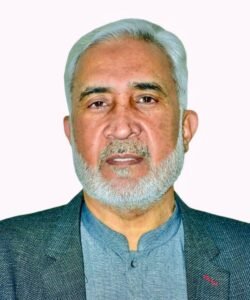In today’s rapidly evolving world of healthcare, leadership should be defined not by outdated hierarchies or job titles, but by merit, competence, and vision. Unfortunately, in many parts of the world, especially in South Asia, deep-rooted biases still hinder the progress of highly qualified professionals simply because they come from professions traditionally seen as “supportive” rather than “central.”
Recent objections raised over the appointment of a senior nurse to a leadership position reflect a regressive and elitist mindset that deserves serious scrutiny. If the individual in question meets all the legal, academic, and experiential requirements of the position, then opposing him merely because he is a nurse is both unfair and intellectually dishonest.
Let’s be clear: nursing is a critical and science-based profession, requiring not only deep clinical knowledge but also administrative insight, patient advocacy, and community leadership. If a nurse has earned a Master’s degree, PhD, conducted research, and served in the field with distinction, what justification could possibly remain to block his/her advancement? To reduce such a professional to someone who “only does bandaging” shows ignorance and disrespect for the profession and the countless lives it uplifts every day.
Nursing is not the only field subjected to such narrow-minded judgment.
Highly trained physical therapists are often seen merely as “exercise providers,” even though they hold advanced degrees and play a pivotal role in restoring mobility, preventing disability, and improving quality of life. Occupational therapists are dismissed as mere “hand therapy” providers, despite their expertise in promoting independence and holistic rehabilitation. Clinical psychologists, who can be life-saving for those battling trauma, depression, and other mental health issues, are often sidelined due to social stigma. Social workers, who serve on the frontlines of community well-being, advocacy, and child protection, are rarely invited to decision-making tables.
These professionals are not auxiliaries; they are essential. And many of them are more than capable of leading hospitals, rehabilitation centers, academic institutions, and even health policy bodies, if only we remove the artificial barriers placed before them.
The truth is, no post, (be it Director, Principal, Professor, or CEO) belongs exclusively to doctors, bureaucrats, or individuals from any single background. It belongs to whoever fulfills the criteria, proves their competence, and earns the right to lead.
If there is a genuine procedural violation in an appointment, the courts are the rightful forum to challenge it. But if the sole objection is rooted in bias, against nurses, therapists, psychologists, or social workers, then we must call it out for what it is: prejudice dressed as principle.
It is time we broaden our understanding of leadership in healthcare. True progress demands that we judge professionals by their qualifications, impact, and commitment, not by the traditional labels we assign to their roles.
Let us move from exclusion to inclusion. Let us build a healthcare system where leadership is earned, not inherited, where merit wins over mindset.
Dr. Syed Mohammad Ilyas is a Michigan Board Certified Physical Therapist and the CEO of the Paraplegic Center Peshawar. He is the founder of the Friends of Paraplegics (FOP) and the College of Physical Medicine & Rehabilitation (CPMR). He has been a lifelong advocate for inclusive healthcare and disability rights in Pakistan.
Writer By: Dr. Syed Mohammad Ilyas


